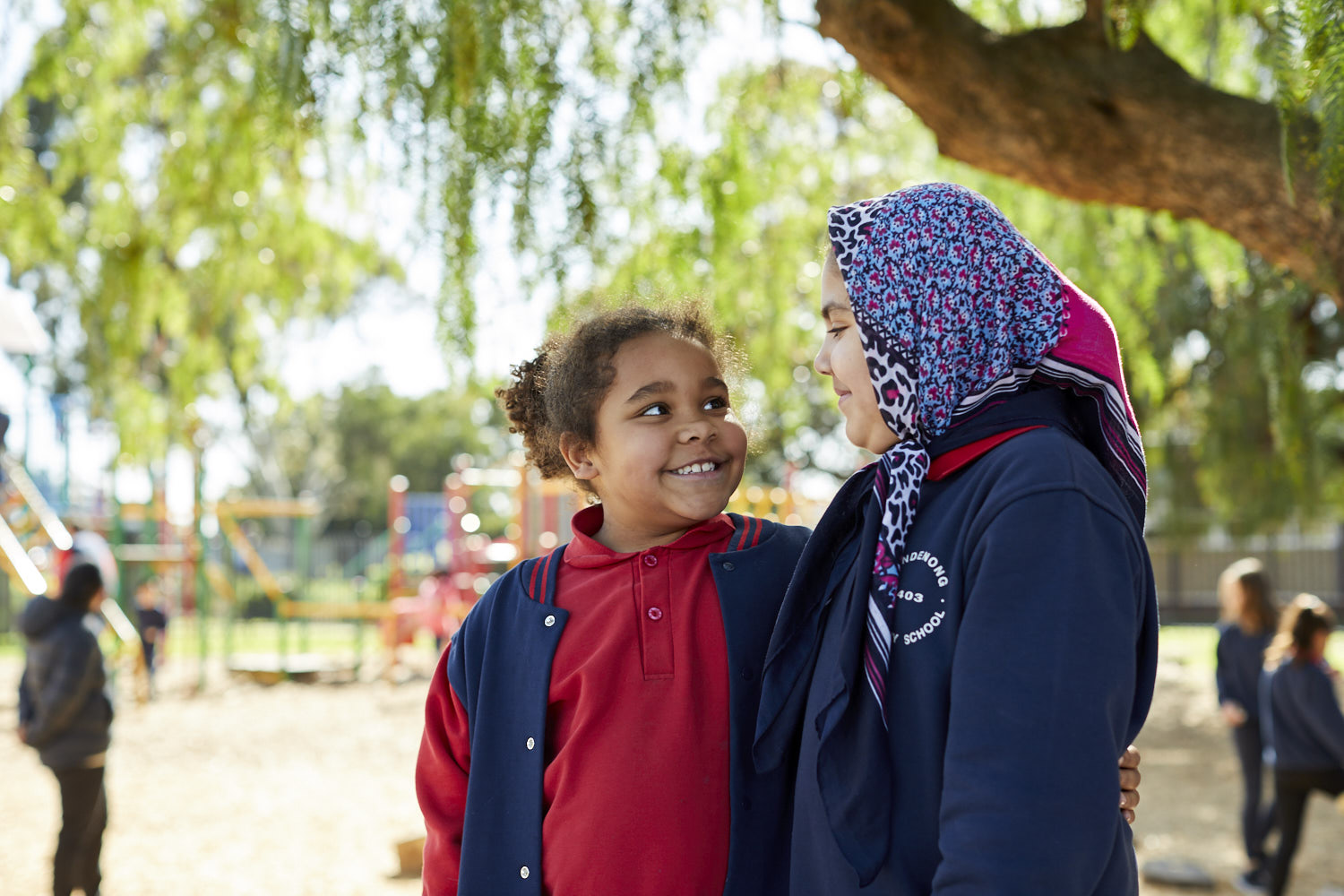On this page
Download this Fact Sheet:
Fact Sheet: Self-regulation (240.8 KB, PDF)
What is self-regulation?
Self-regulation is learning about your own feelings and emotions, understanding how and why they happen, recognising them, and developing effective ways of managing them.
When children and young people learn to self-manage their emotions, they can feel more confident, capable and in control. They can have stronger relationships, are more able to pay attention, learn new things and can cope better with the normal ups and downs of daily life.
Self-regulation in childhood
In their early years, children are often just beginning to learn about emotions and feelings, and how to manage them.
From time to time, young children may display behaviours such as aggression, emotional outbursts and inattention. Gradually however, most children learn which situations are likely to upset them and how they can manage their emotions better when these situations arise. This learning continues into adolescence.
Children and young people are unique
Children vary in the way they perceive, respond and interact with the world around them. They vary in how they switch between moods (with some taking longer and needing more help than others to recover from being upset), how they respond to new situations (some dive straight in while others tend to withdraw and observe from a distance), and how long they can concentrate for.
Stress
It’s also important to note that children and young people who’ve experienced prolonged, high levels of stress (i.e., from chronic violence, intergenerational trauma, abuse or neglect) may respond to new stressors with heightened anxiety or alertness even if that situation isn’t considered by most to be that threatening. This can make it harder for children and young people to self-regulate.
Educators play a vital role in supporting children and young people to practise their self-regulation skills by providing a safe and nurturing environment to help them develop their emotional learning.
Self-regulation in adolescence
In secondary school, young people still need help to understand and manage their emotions. Young people may experience more complex situations, and relationships as well as puberty – all during a time when their brains continue to develop.
Brain development
By adolescence, the amygdala (the part of the brain associated with emotions, impulses, aggression and instinctive behaviour) is well developed.
However, the brain’s pre-frontal cortex – the part of the brain responsible for planning, problem-solving, managing impulses and thinking about consequences – is still developing and doesn’t fully develop until a person is in their mid-20s.
As a result of this, young people’s brains typically rely on the amygdala to make decisions and solve problems, particularly in emotionally charged situations.
For this reason, adolescents are more likely to:
- act on impulse
- misread or misinterpret social cues and emotions
- engage in dangerous or risky behaviour.
How can you help?
Children and young people need repeated experiences of having their needs met by a caring adult.
Warm, trusting and responsive care helps children to respond with appropriate emotions, internalise a positive view of themselves and others, and learn appropriate behaviour. Children and young people can also develop self-management skills by watching and experiencing how other people manage their emotions.
Here are some tips about how you can support the development of self-regulation in children and young people.
Explicitly teach skills
- Talk about ways of managing upsetting situations.
- Help them to develop strategies to use when they’re feeling overwhelmed.
- Help them express their emotions in healthy ways (for example, by drawing or acting out their feelings).
- Practise mindful breathing with children and young people.
- Normalise and promote help-seeking.
- Collaborate with and share strategies with families.
- Explore the immediate and long-term consequences of actions.
- Promote empathy by talking about emotions and understanding how people will have different reactions to events depending on their circumstances.
- Teach problem-solving and decision-making skills.
Talk about emotions
- Acknowledge and respond to emotional communication.
- Role-model how you manage your own feelings.
- Talk about strategies to manage strong or uncomfortable emotions.
- Ask where they feel these emotions in their bodies to help deepen their awareness.
Promote a calm environment
Environment contributes to children and young people’s self-management. Promote a calm, welcoming and encouraging environment by:
- providing structure and predictability
- establishing age-appropriate routines and limits
- create a calm, quiet space where children and young people can go to de-stress and regulate their emotions
- including relaxation breaks in the day
- encouraging ways to release tension they might be holding in their body
- demonstrating calmness and managing your own feelings and behaviours – self-awareness allows you to maximise your positive interactions with children and young people and better manage situations.
Children and young people can also learn self-regulation through co-regulation. This involves watching and experiencing how a caring adult models and supports emotional management. This can help them develop their own strategies over time.
Be You Resources
Learn more about Educator wellbeing.Learn more about the Programs Directory for a list of mental health and wellbeing programs. Including those on self-regulation.
Learn more about self-regulation in the Mine, yours, ours webinar.
Learn more about Understanding stress.
Be You Professional Learning
Learn more about social and emotional learning (SEL) and teaching for resilience in the Learning Resilience domain.Learn more about creating positive and supportive environments in the Mentally Healthy Communities domain.
-
Bibliography
Cooper, P.M. (2007). Teaching young children self-regulation through children’s books. Early Childhood Education Journal, 34, 315-322.
-
External links
Raising Children Network
CASEL – Collaborative for Academic, Social, and Emotional Learning
